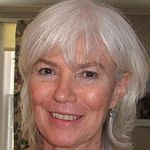 (HOST) Narratives about the past can move us deeply – especially when told by a member of our own family. Writer and commentator Elaine Harrington recently helped her father write his life story.
(HOST) Narratives about the past can move us deeply – especially when told by a member of our own family. Writer and commentator Elaine Harrington recently helped her father write his life story.
(HARRINGTON) Winter – especially a long one like this one has been – seems like an excellent time to solicit and record the lifetime memories of our elders.
Last winter my father recorded his life story, which I completed transcribing this December and distributed for the holidays. It’s since become a cherished family read.
My dad’s a wonderful storyteller – so I had heard much about his unusual life. But the memoir project has revealed additional details about his 86 years.
Harry Keen is an electronic engineer and inventor. He retired at age 71 from Fairbanks Morse in St. Johnsbury – where his ideas brought many production jobs to the community. His patented inventions protecting scales from lightning and explosive environments, and for powering solar scales, are still in use – as are many others.
But his life includes so much more. He’s the child who almost died of tuberculosis. He’s the city kid who experimented with cast-off factory equipment and explosives. He’s the young man who built the first television set on the Jersey Shore and corresponded with NBC in New York about signal strength from the Empire State Building.
The cast of characters whom his family took in during the Depression would fill a novel – as would the year in a Jersey City tenement, where my dad had to run from gangs en route to school each day. Things improved when my grandfather became a detective, and the family moved to a beautiful seaside town. There my dad would explore sailing, Big Band music, and his hobbies of science and electricity.
At age 17, he began work in a mechanical-electrical firm and soon was supervising multi-million dollar contracts for oscilloscopes and other devices needed by industry and the military.
The memoir describes his engineering career in New Jersey, and then Vermont. But I’m also learning just how deliberately my parents created an environment for their eight children to thrive.
Our home was different – built from cinder blocks by Harry and Mildred during their engagement. We had go-carts with gasoline engines that we drove in the woods. We had home-welded playground equipment. We rode our bikes and roller-skated outdoors and in. We ate freely from gardens and fruit trees, and brought the only whole wheat sandwiches to school. And we often "helped" with carpentry and auto mechanics in my father’s workshops. Neighborhood kids never wanted to leave.
Lots of exercise and learning were my dad’s goals – along with clear behavior standards. "I never looked at the family as a burden," he writes. "It was a group of individuals that seemed to enjoy life, and we had many, many good times along the way."
Here’s my favorite line he writes about parenting: "I always have fond memories of the children hanging upside down in the branches of the dogwood trees out front."
Working with him on his life story has been one of the best writing projects I’ve ever undertaken. And there’s another memoir under way.
My mother and I sat down recently to record her thoughts about marriage, children and grandchildren – and life on the home front during World War II. This winter has been a long one, but our family is putting it to good use.